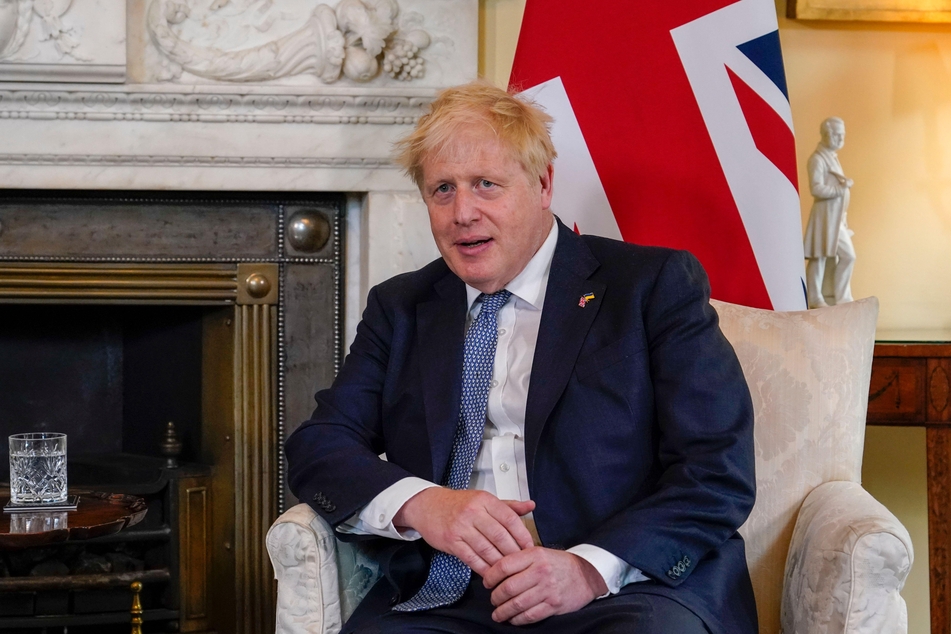The prime minister has won a vote of no confidence in his leadership.
211 (around 58 per cent) MPs voted in favour of keeping him in No 10, while 148 (around 41 per cent) voted to oust him.
359 ballots were cast and none were spoiled.
180 MPs from the total of 359 that currently have the Conservative whip would have needed to vote against the prime minister to trigger a leadership contest that Johnson would be barred from, effectively ending his premiership.


Speaking to Sky News following the vote, Johnson said he was “certainly not interested” in a snap election.
Earlier this evening policing minister Kit Malthouse said he thought the prime minister would “thumpingly” win the “vast majority” of MPs’ support.
Under the 1922 committee’s current rules, Johnson’s victory in tonight’s vote means he cannot face a vote of no confidence for another year.
However the rules of the committee are open to change and a rejig of its rules was discussed earlier this year.
Following Johnson’s win, education secretary Nadhim Zahawi said it was time to “draw a line under” questions surrounding Johnson’s leadership.
However Johnson has performed worse than several previous Conservative leaders.
In 2018, Theresa May won a vote of no confidence with the backing of 63 per cent of her own MPs.
In June 2019 May announced her intention to resign as PM as the threat of a fresh no confidence vote loomed across the following months.
Under the same system in 1995 John Major was backed by 66 per cent of his MPs in a leadership race he contested following his resignation, but his authority was dented as he went on to unsuccessfully defend the Conservative majority at the 1997 general election.
Under previous voting rules Margaret Thatcher was backed by 54 per cent of her MPs in 1990 prior to her resignation as PM. Around 40 per cent voted to oust her, 1 per cent lower than Johnson’s result tonight, and 4.3 per cent abstaining.
In the 1989 leadership vote Thatcher was backed by 90 per cent of her MPs.
The Conservatives will soon face two byelections, in Wakefield and Tiverton and Honiton respectively, on 23 June.
Lacklustre results in these seats could prompt further complaints from Conservative MPs, laying the groundwork for possible 1922 rule changes and a further no confidence vote.
Should Johnson lose a future no confidence vote, a leadership contest will henceforth be triggered.
Johnson would be permitted to remain in post while a new leader is voted on by Conservative party members.
If he chose to step down immediately an interim PM, likely deputy PM Dominic Raab, would need to be selected.
Defence secretary Ben Wallace is currently the most popular minister among the Tory grassroots, sitting at 80 per cent favourability according to the latest Conservative Home polling.
Foreign secretary Liz Truss is runner up at 67 pc while Nadhim Zahawi trails slightly behind her on 65.
Trade minister Penny Mourdant is also said to be on leadership manoeuvres, as are former health secretary Jeremy Hunt and foreign affairs select committee chair Tom Tugendhat.
Many MPs who publicised their criticisms of the PM have cited concerns over rule breaking at Downing Street during lockdown restrictions.
In April the Metropolitan Police issued fines to both Boris Johnson and Rishi Sunak for violating Covid rules.
Johnson remains under investigation by the House of Commons privileges committee over whether he misled MPs via his comments on the Partygate affair.
Last month’s long-awaited publication of Sue Gray’s report into lockdown gatherings in Downing Street and Whitehall described events during which some staff got so drunk they vomited, wine was spilt on walls and aides brawled.












